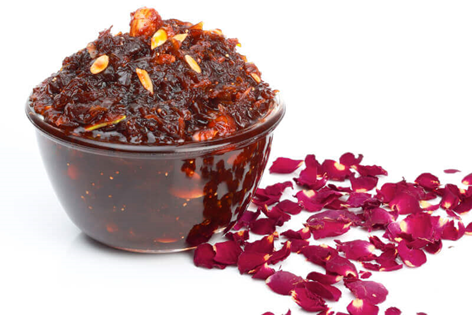Sweet Alternatives for Seniors: Guilt-Free Indulgence with Indian Sweeteners
Seniors often find joy in a
sweet treat, but excessive sugar can lead to health issues. Fortunately,
India's rich culinary heritage provides natural alternatives that are not only
tasty but also bring health benefits. Here are seven fantastic Indian
sweeteners for guilt-free enjoyment:
Jaggery Unrefined and rich
in minerals like iron, magnesium, and phosphorus, jaggery is a healthier sugar
substitute. With a lower glycemic index, it releases sugar slowly, preventing
energy spikes. Add a warm, caramel-like flavor to teas, desserts, and sweets by
substituting jaggery for sugar in your recipes.
Dates Nature's candy,
dates are packed with fiber, potassium, and antioxidants. Their natural
sweetness makes them perfect for baked goods, smoothies, and energy balls. The
fiber content helps with digestion and weight management, making dates a
wholesome choice.
Gulkand A delightful blend
of sweetness and floral aroma, this rose petal preserve is traditionally used
for digestive issues and offers antioxidant and anti-inflammatory benefits.
Enjoy gulkand paired with paan (betel leaves) or spread it on toast for a
unique flavor experience.
Munakka (Raisins) Sun-dried grapes, or munakka, are a snack rich in energy, fiber, and iron. Their natural sweetness enhances desserts, rice dishes, or chutneys. Soaking them in water overnight boosts their digestive benefits, making munakka a healthy addition to your diet.
Stevia Extracted from the
stevia plant, this calorie-free sweetener doesn't raise blood sugar levels,
making it ideal for diabetics and those seeking weight loss. Available in
powder or liquid form, its concentrated sweetness means a little goes a long
way in teas, yogurt, or sprinkled over fruits.
Fruits Fresh fruits are
nature's candy, packed with vitamins, minerals, and fiber. They naturally
sweeten any meal. Use chopped mangoes, bananas, or apples to enhance desserts,
blend them into smoothies, or enjoy them as a guilt-free snack.
Honey Honey offers
antibacterial and immune-boosting properties, making it a healthier alternative
to sugar. While it contains sugar, honey also provides beneficial enzymes,
vitamins, and minerals. Use it in teas, drizzled over fruits, or in homemade
chutneys and jams.
It takes time to go off of
sugar. Reducing sugar consumption gradually while incorporating small amounts
of these substitutes. Try out various combos to see what best suits your taste
preferences and health objectives. You don't have to sacrifice your wellbeing
to enjoy life's sweets when you have creativity. Older adults, make healthy
sweets in your life!
Mr. S.K. Sethi is founder of RIA
Insurance Brokers and specializes in health insurance products for families as
well as corporates. For diabetic patients, having comprehensive healthinsurance is crucial. It covers the cost of medications, regular check-ups, and
specialist visits, ensuring effective disease management. Good insurance also
provides access to necessary resources like nutritional counseling, helping
patients maintain their health and reduce complications.
Blog of S.K. Sethi, Founder of RIA
Insurance Brokers, you may connect him for any query at his email id:
sksethi@riainsurance.com













